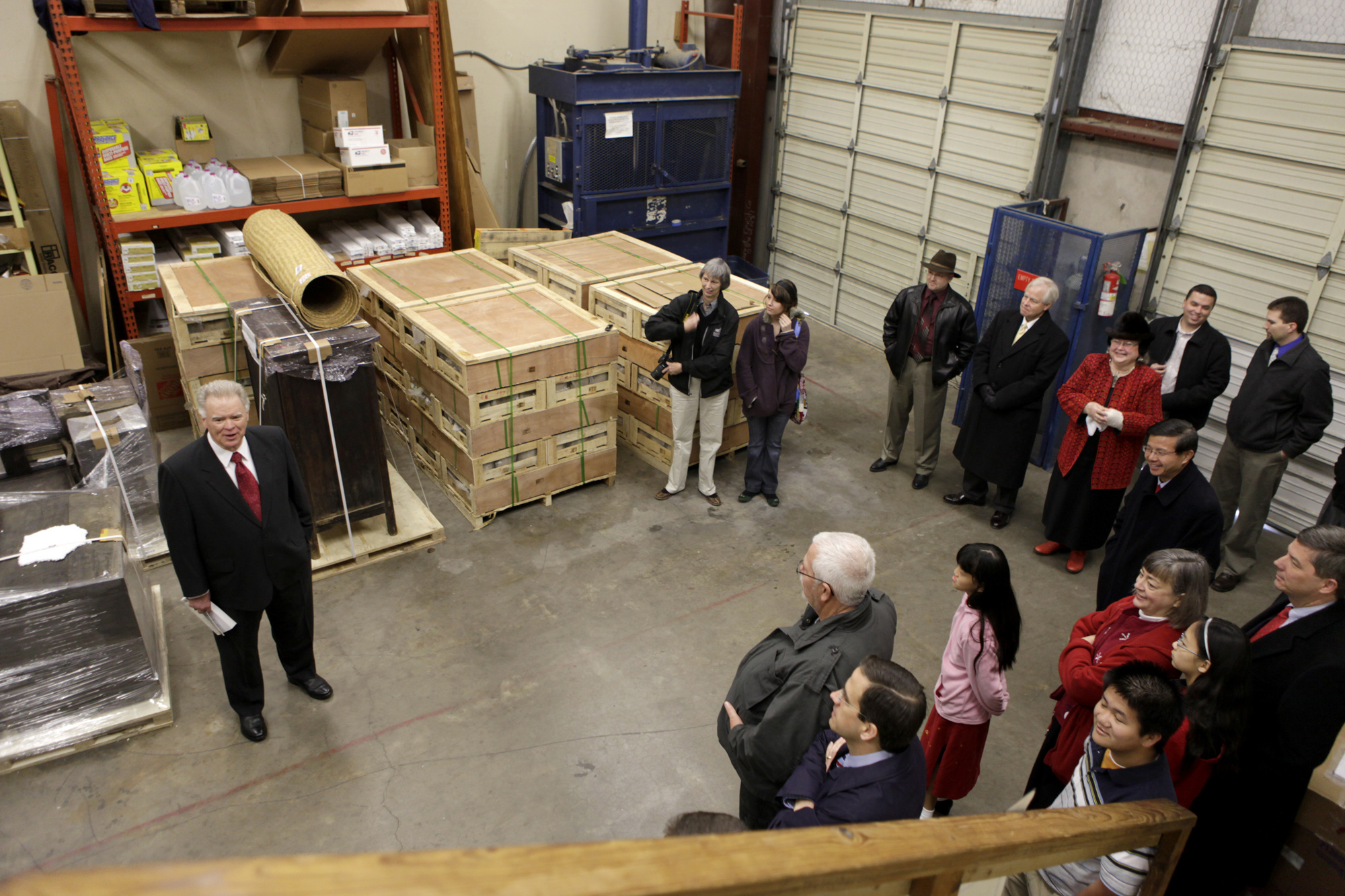
FORT WORTH, Texas (BP)–Southwestern Baptist Theological Seminary unveiled a shipment from China Dec. 16 containing remnants from the Chinese home and belongings of Lottie Moon.
The seminary plans to display the items in order to preserve Moon’s legacy and edify Southern Baptists, who have collected a Christmas missions offering in the name of the devoted missionary since 1918.
Seminary officials opened crates containing some of Moon’s furniture, such as chairs and a stove, as well as shingles, bricks and other remains from her house in P’ingtu, China. The crates also contained antiques from 19th-century P’ingtu City that will help Baptists understand the Chinese culture and the people to whom Moon devoted her life.
Before dedicating these antiques in prayer, seminary President Paige Patterson explained why Lottie Moon is so significant to Southwestern Seminary and the Southern Baptist Convention “in the aftermath of the conservative renaissance of the convention.”
“She saw very clearly, the close connection between a high confidence in the Word of God and the success of her missionary endeavor in China,” Patterson said. He noted that, toward the end of her first term in China, Moon refused to marry Baptist professor Crawford Toy because he had “imbibed historical-critical thinking” and a more skeptical attitude toward the Bible’s inerrancy during his studies in Germany. She feared that liberal theology would undo the positive impact she had made among the Chinese people for Christ.
“It is almost inconceivable to think of what it would have been like in the late 1800s for a single woman to move into an incredibly patriarchal society — patriarchal not in its good sense, but in its exponentially wicked sense — where women didn’t really count,” Patterson said. Despite severe challenges, Lottie Moon immersed herself in the Chinese culture and succeeded in winning the respect of the Chinese people.
The Chinese antique furniture and architectural structures that are now housed at Southwestern Seminary show the degree to which she immersed herself in this culture. She rented her house in P’ingtu — a four room structure with dirt floors and clay shingles that covered a thatched roof and bare rafters — for $24 a year. She adapted one room as a kitchen, one as a storeroom, and another as a passageway. She lived, prayed, entertained guests and rested in the fourth room, sleeping on a Chinese kang — a traditional bed made from mud bricks and covered with a thatched, straw mat. From here she set out into the city of P’ingtu, dressed in traditional Chinese garb, to befriend her neighbors and share the love of Christ.
Southern Baptists named their Christmas missions offering after Lottie Moon in honor of her diligent and sacrificial service, Patterson said. As a result, “she being dead yet speaketh.”
“Just imagine,” Patterson said, “how many people have come to Christ all over the world as a result now of her witness because of the incredible millions of dollars that Southern Baptists have given for the cause of world missions.”
Patterson also expressed thanks to Southwestern alumnus Paul Kim, pastor of Berkland Baptist Church in Cambridge, Mass., and former president of the seminary’s National Alumni Association, and Louie Lu, the president of Yangtze International, Inc. Through their efforts, Lottie Moon’s belongings were purchased and transported by boat, train and automobile to Southwestern Seminary, where they were received with excitement.
Kim said that seminary alumnus Mike Smith, director of minister/church relations with the Southern Baptists of Texas Convention (SBTC), envisioned this project and suggested that Kim purchase Moon’s house and belongings. They both realized that the house would soon be demolished along with other 19th-century Chinese houses as a result of P’ingtu City’s modernization efforts. Kim proceeded to pursue the vision with the desire to deliver Moon’s belongings to the seminary by Christmas.
A Chinese group associated with Kim gathered Moon’s belongings, receiving logistical advice from Lu, who said he was happy to be a part of the team that has enabled Southwestern Seminary to preserve the antiques. A friend of the seminary who was born and raised in China, Lu carefully administrated the transportation of Moon’s belongings — comprised of 35,000 pounds of items, many of them fragile — to Fort Worth, Texas. Lu and his wife also provided the funds for transporting the antiques. His Dallas-Fort Worth based company, Yangtze International, Inc., specializes in the importation of custom-made products from China to the United States.
Wages Forman, associate director of facilities maintenance at Southwestern Seminary, traveled to P’ingtu, where he examined Moon’s home and obtained architectural drawings that may be used to reconstruct a model of the house. The seminary, Patterson said, is evaluating the best way for displaying Moon’s home and belongings.
In the meantime, the SBTC is raising funds in order to prepare the display of Lottie Moon’s house and belongings. The Texas Baptist Builders, a crew of volunteers from SBTC churches, are also prepared to assist in constructing a house modeled after Moon’s home in China if the seminary displays her belongings in this way.
–30–
Benjamin Hawkins writes for Southwestern Baptist Theological Seminary.















